1088 Music, extinction, and stardust
Stardust: memoir and essays by an astronomer who became a psychiatrist
by Jaime Smith
Vancouver: Granville Island Publishing, 2021
$19.95 / 9781989467305
Reviewed by Sheldon Goldfarb
*
Editor’s note: Jaime Smith’s new book Stardust, reviewed here by Sheldon Goldfarb, contains Smith’s essays and his previously-published memoir Foxtrot: Notes from the Bear Cave, reviewed here by Peter Ward in 2020.
*
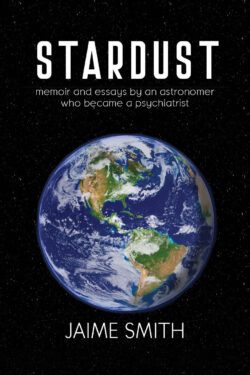 Jaime Smith is a retired psychiatrist living in Victoria who has taken to writing essays in his old age. Short little essays, mostly summaries of books or book reviews he’s read. On such things as odd word histories (“recreational linguistics,” he calls this) and politics and the meaning of life.
Jaime Smith is a retired psychiatrist living in Victoria who has taken to writing essays in his old age. Short little essays, mostly summaries of books or book reviews he’s read. On such things as odd word histories (“recreational linguistics,” he calls this) and politics and the meaning of life.
It would be nice if he had discovered the meaning of life, but of course he hasn’t and confesses as much. We are but stardust, it seems, deriving somehow from a space-time singularity eons ago and destined to turn to dust and be forgotten. He hauntingly tells us that we will all die and be forgotten and the world will move on without us.
Or will it? He seems to fear not only his own death but the death of our whole species. We are headed for extinction, he says, sounding like the prophet Jeremiah, to whom he refers approvingly. Global warming and over-population will do us in, along with capitalism and technology, the drive to be Number 1 and the insatiable desire for growth, all derived it seems from the wiring of the human (especially male) brain.

It is much in line with modern environmental thought, but taken to such an extreme that he dismisses the environmental movement and just says we are all doomed. What should we do in this dire situation? Be kind, he says, and maybe occupy your time with books and music (classical music). He is a great aficionado of both, and in some ways quite traditional in his tastes despite aligning politically with progressive thought. We must preserve what we have built up, he says, which does not at all sound like the latest advanced thinking.
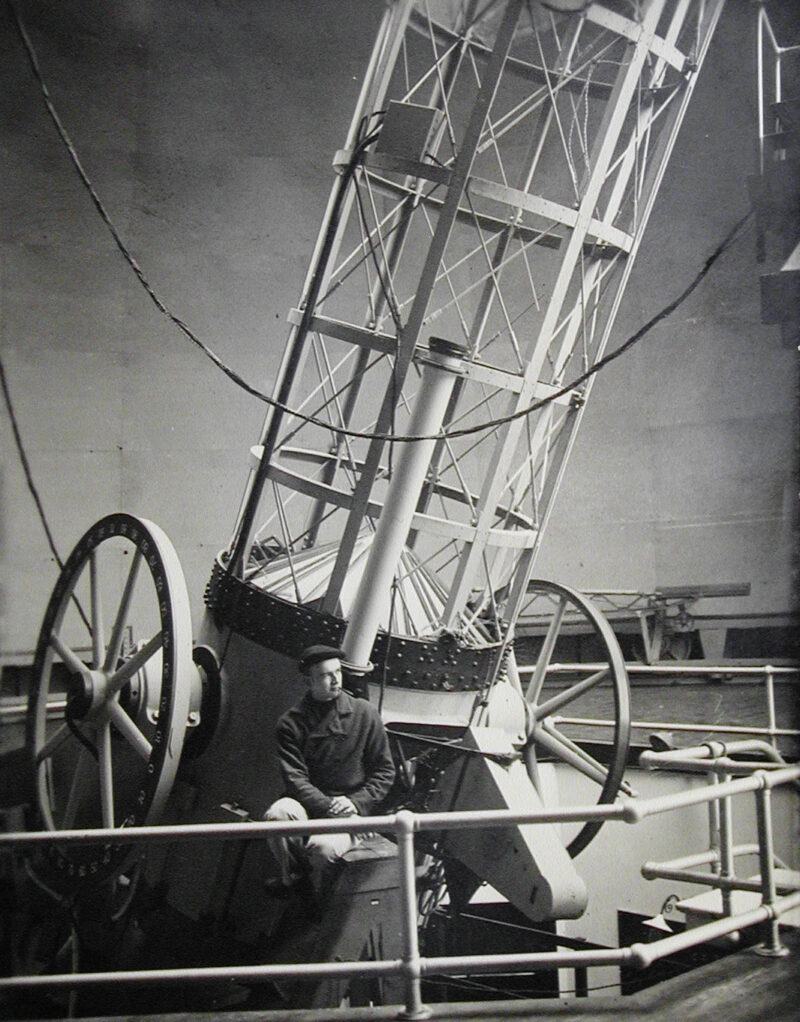
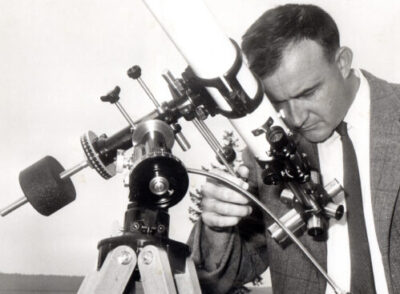
And he has some interesting points to raise about such things as irrationality (we will never eliminate it and perhaps we need it, or we need a sense of bonding and belonging, which means we put the interests of our group ahead of rationality). On the other hand, we perhaps have too much awareness. He is no fan of such things as Mental Health Awareness Months. Not everything is a mental health problem, he says – and he should know, having been a psychiatrist.
Of course, as his subtitle tells us, he was not always a psychiatrist. He was an astronomer first but gave that up because of taking LSD. Some people take LSD and turn into Fools; others become psychiatrists. His LSD trip had him down on the ground looking at plants and thinking, Why am I always looking up at the stars when I could be looking down at the world around me? And so he left astronomy for biology, which led to medical school at UBC and then to psychiatry at St. Paul’s and then up in the Yukon, where he was the only psychiatrist in the territory. Even after he returned to British Columbia he continued to do telepsychiatric sessions with patients up north, and liked to fly a Yukon flag.
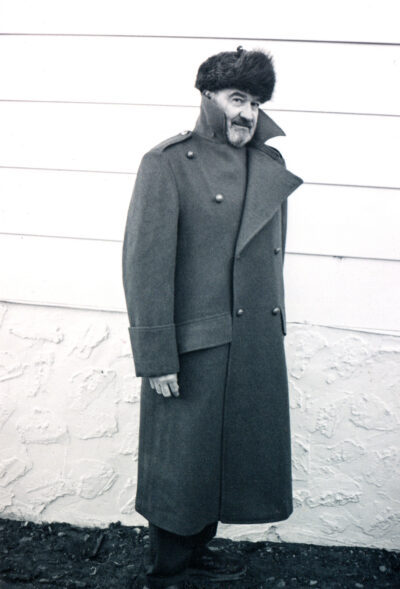
But he did not begin life in British Columbia or the Yukon. He did not even begin life as Jaime Smith. He was plain old James Smith in Minnesota, but he was so put off by American militarism that he decided to give up on his country and move to Argentina, where James became Jaime: pronounced Hymie, so that in Canada later some people thought he was Jewish. But what he was actually, before moving to Canada, was a foreigner in the land of his birth. He returned for a while to Minnesota after his years in Argentina, and there he was, Jaime, the native-born foreign national. Very odd.
And then he left Minnesota again, this time for Nelson and Castlegar in BC, loving the mountains and also motorcycles. Loving to travel by motorcycle and eventually joining a gay motorcycle group known as the Ferryriders. He also joined and eventually became president of the Victoria Prime Timers, a group of older gay men. And one of the accomplishments he is proudest of is the work he did to get homosexuality removed from the list of psychiatric disorders. In debates on this with his psychiatric peers he came up with a brilliant riposte when someone said that what he was proposing was a step backward. A step backward is a good step to take, said Jaime Smith, if you’re facing in the wrong direction.
So an interesting life and some interesting ideas from the motorcycle-riding, classical-music loving, traditionalist progressive who moved from astronomy to psychiatry because of LSD and who writes essays in retirement to stave off thoughts of returning to stardust.

*
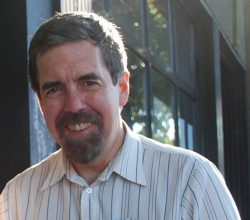
Sheldon Goldfarb is the author of The Hundred-Year Trek: A History of Student Life at UBC (Heritage House, 2017), reviewed here by Herbert Rosengarten. He has been the archivist for the UBC student society (the AMS) for more than twenty years and has also written a murder mystery and two academic books on the Victorian author William Makepeace Thackeray. His murder mystery, Remember, Remember (Bristol: UKA Press), was nominated for an Arthur Ellis crime writing award in 2005. His latest book, Sherlockian Musings: Thoughts on the Sherlock Holmes Stories (London: MX Publishing, 2019), was reviewed here by Patrick McDonagh. Originally from Montreal, Sheldon has a history degree from McGill University, a master’s degree in English from the University of Manitoba, and two degrees from the University of British Columbia: a PhD in English and a master’s degree in archival studies. Editor’s note: Sheldon Goldfarb has reviewed frequently for The Ormsby Review, most recently books by Jesse Donaldson, Norman Ravvin, George L. Pál, Nicholas Bradley, Sherrill Grace, Philip Resnick, Miriam Nichols, and Edwin Wong.
*
The Ormsby Review. More Books. More Reviews. More Often.
Publisher and Editor: Richard Mackie
The Ormsby Review is a journal service for in-depth coverage of B.C. books and authors. The Advisory Board consists of Jean Barman, Wade Davis, Robin Fisher, Cole Harris, Hugh Johnston, Patricia Roy, David Stouck, Maria Tippett, and Graeme Wynn. Scholarly Patron: SFU Graduate Liberal Studies. Honorary Patron: Yosef Wosk. Provincial Government Patron since September 2018: Creative BC
“Only connect.” – E.M. Forster

7 comments on “1088 Music, extinction, and stardust”
So great to see my Father’s book getting reviewed. He has lived a rich and complicated life, and we are all very proud of this man we love so much!
Thanks, Emilie, and nice to hear from you! – Richard